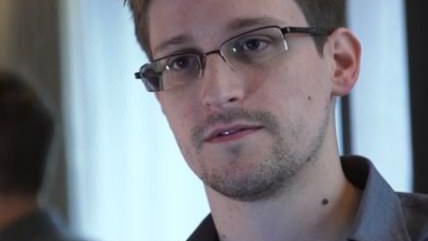So, What Else Does Edward Snowden Know?


Over the weekend, Glenn Greenwald, who broke the Edward Snowden/NSA/PRISM story over at The Guardian, told La Nacion in Argentina that surveillance leaker Snowden is capable of causing more damage to the United States than "anyone else has ever had in the history" of the country. Besides writing the prosecution's opening statement should Snowden actually be captured, Greenwald was attempting to point out that he didn't intend to do so. Fox News reports:
"But that's not his goal," Greenwald told the newspaper. "His objective is to expose software that people around the world use without knowing what they are exposing themselves to, without consciously agreeing to surrender their rights to privacy. He has a huge number of documents that would be very harmful to the U.S. government if they were made public."
Greenwald also told The Associated Press that disclosure of the information in the documents would "allow somebody who read them to know exactly how the NSA does what it does, which would in turn allow them to evade that surveillance or replicate it."
Greenwald said "literally thousands" of documents taken by Snowden constitute "basically the instruction manual" for how the NSA is built.
"In order to take documents with him that proved that what he was saying was true he had to take ones that included very sensitive, detailed blueprints of how the NSA does what they do," said Greenwald, adding that the interview took place about four hours after his last interaction with Snowden.
If this is the case, actually quite a few people are probably able to cause this damage. Snowden's just the one who has gone public to let us know the extent of what was going on.
Greenwald also explained the pact to release more information should any harm come to Snowden:
Asked about a so-called dead man's pact, which Greenwald has said would allow several people to access Snowden's trove of documents were anything to happen to him, Greenwald replied that "media descriptions of it have been overly simplistic.
"It's not just a matter of, if he dies, things get released, it's more nuanced than that," he said. "It's really just a way to protect himself against extremely rogue behavior on the part of the United States, by which I mean violent actions toward him, designed to end his life, and it's just a way to ensure that nobody feels incentivized to do that."


Show Comments (52)